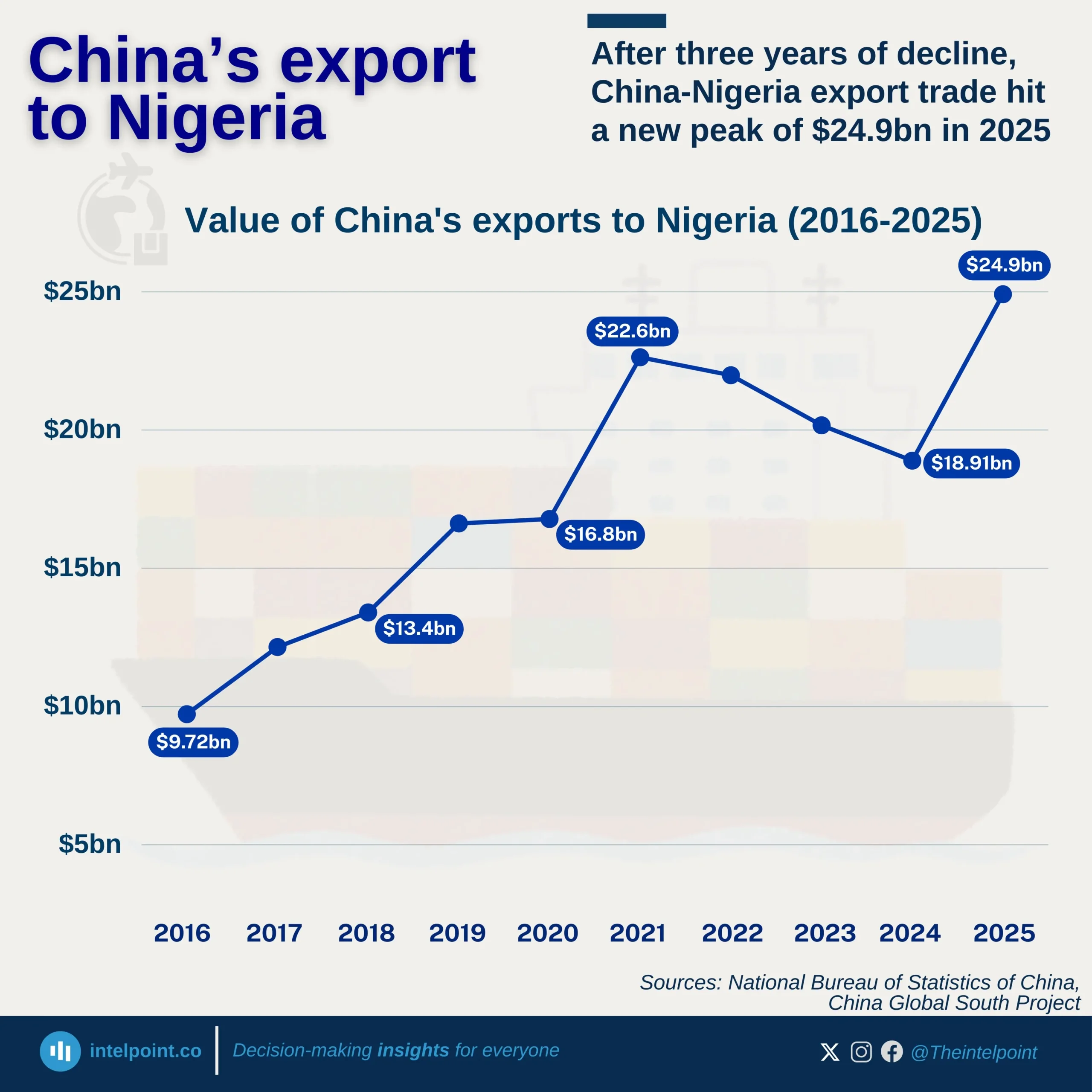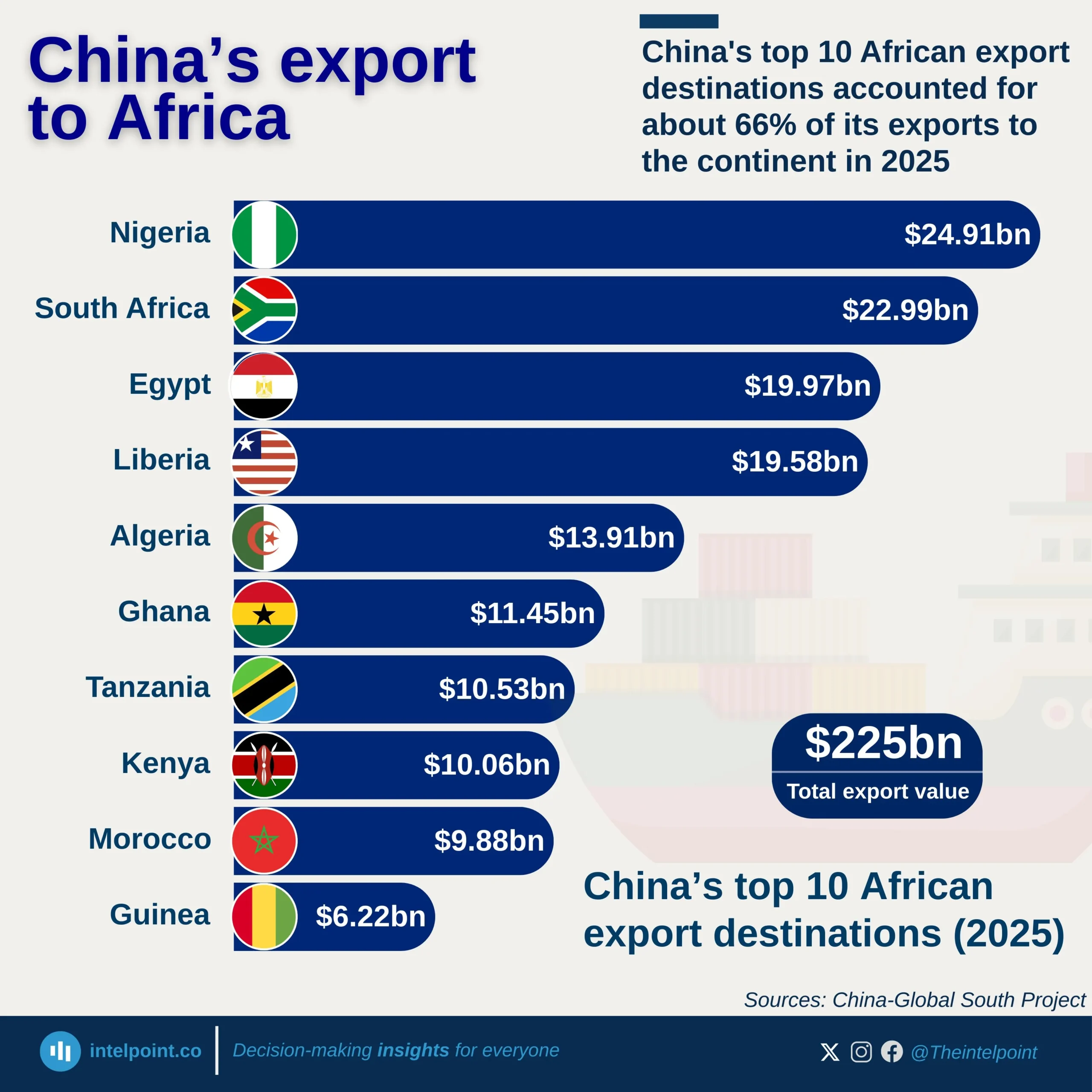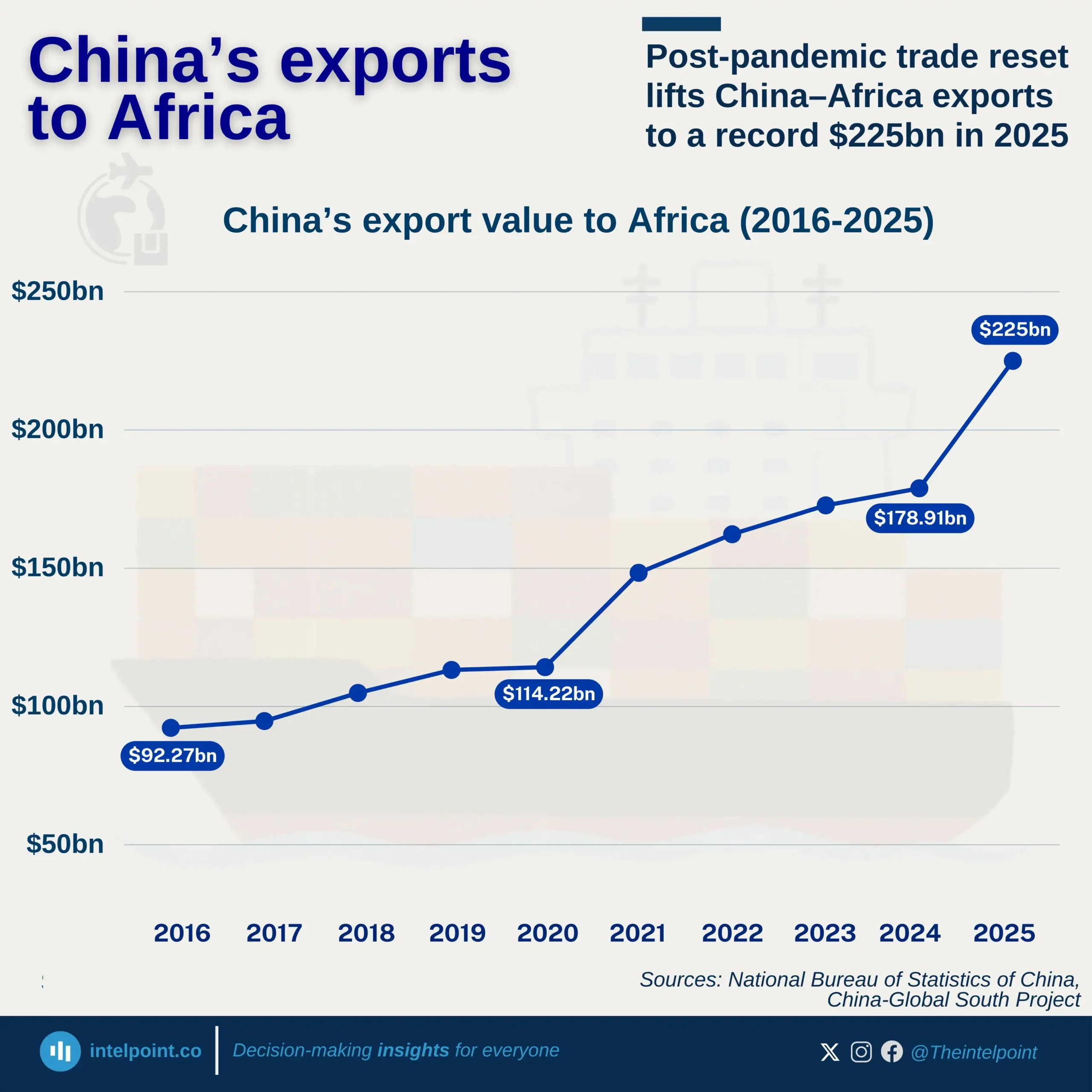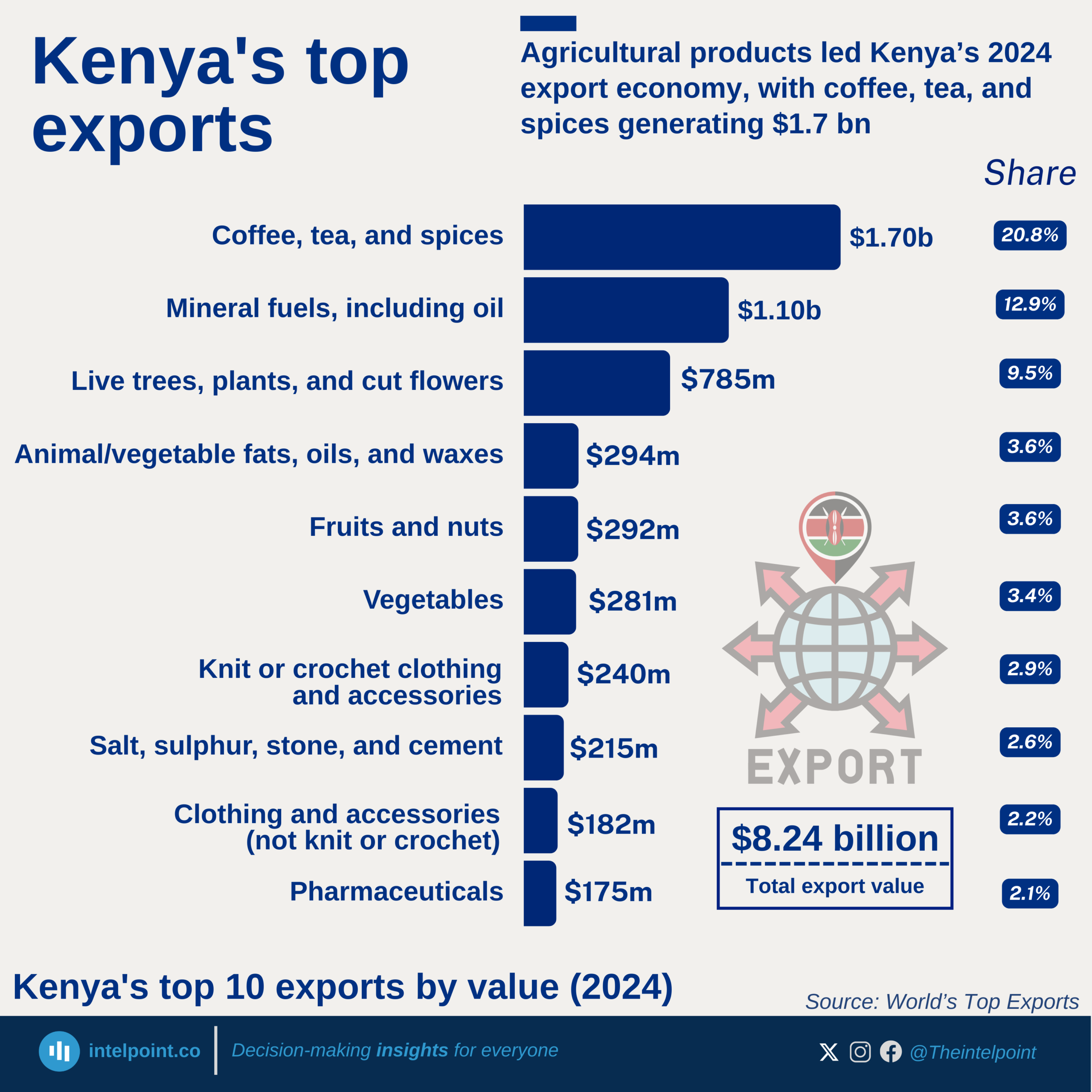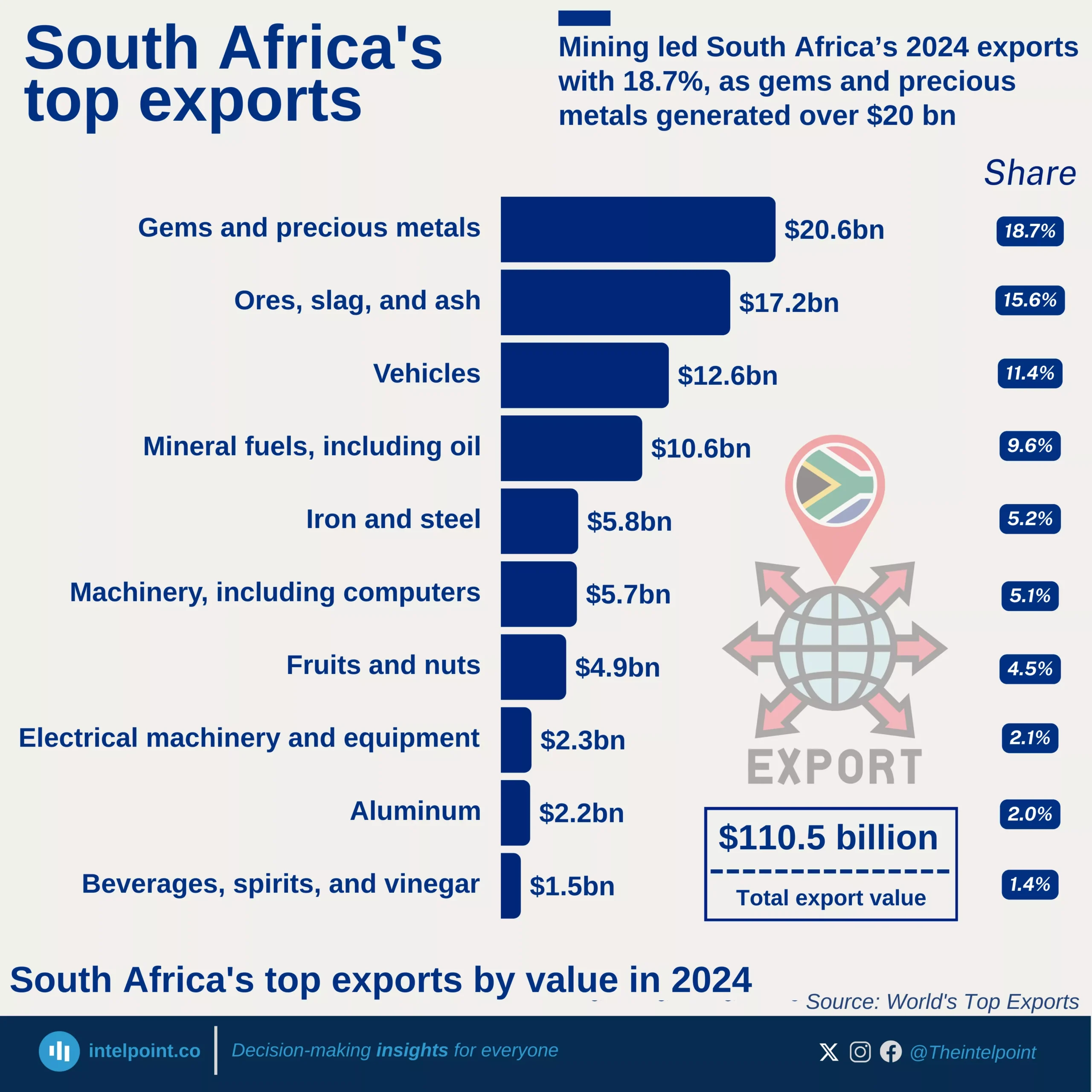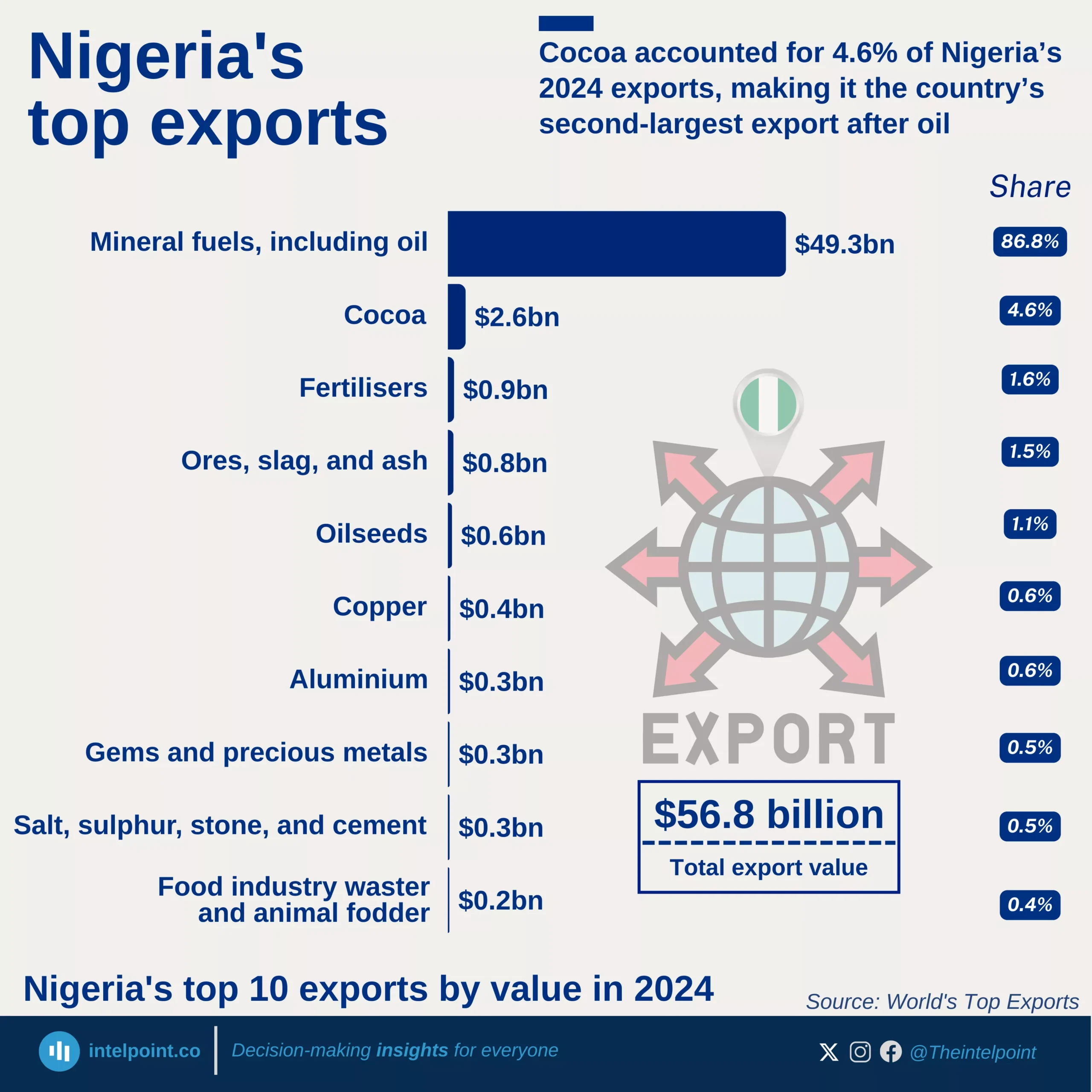In Q2 2025, Togo emerged as Nigeria’s most significant African trading partner, underscoring its role as both a transit hub and a major destination for Nigerian exports. With ₦211.99B in imports flowing from Togo and ₦811.97B in exports directed to it, the relationship highlights Nigeria’s dependence on regional neighbours for both supply and market access. South Africa followed closely, reflecting its role as a continental economic powerhouse, with ₦115.15B worth of goods entering Nigeria and ₦473.65B leaving in the opposite direction.
Côte d’Ivoire stood out as another key partner, supplying ₦106.15B and receiving ₦408.97B in exports, while Ghana and Mauritius rounded out the list with ₦307.47B and ₦264.98B in Nigerian exports, respectively. The dominance of West African countries, Togo, Côte d’Ivoire, and Ghana, in Nigeria’s top African partners illustrates the strength of regional trade integration under ECOWAS, while South Africa and Mauritius highlight strategic ties beyond West Africa.
